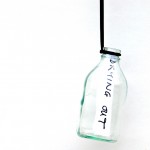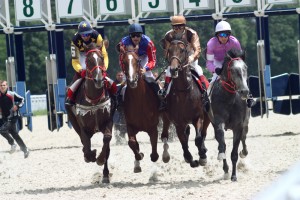
Whilst we all know that excessive alcohol consumption is bad for our health, illicit drug users are one group for whom problem alcohol use can be especially harmful, causing serious health consequences.
The prevalence of the hepatitis C virus is high among illicit drug users and problem alcohol use contributes to a poorer prognosis of this disease by increasing its progression to other diseases. In addition, rates of anxiety, mood and personality disorders are higher among illicit drug users, each of which is exacerbated by problem alcohol use.
Despite these health consequences, the prevalence of problem alcohol use is high among illicit drug users, with around 38% of opiate- and 45% of stimulant-using treatment-seeking individuals having co-occurring alcohol use disorders (Hartzler 2010; Hartzler 2011).
Previous Cochrane reviews have investigated the effectiveness of psychosocial interventions (or ‘talking therapies’) for either problem alcohol use, or illicit drug use alone. However, none have investigated the effectiveness of these therapies for individuals with concurrent problem alcohol and illicit drug use. Given the significant health risk and the high prevalence of concurrent problem alcohol and illicit drug use, a Cochrane review of this kind is long over-due.
Luckily, Kilmas and colleagues have done the hard work for us and their comprehensive Cochrane review of the literature evaluates the evidence for talking therapies for alcohol reduction among illicit drug users (Klimas et al, 2014).

This updated Cochrane review looks at psychotherapy for concurrent problem alcohol and illicit drug use.
The talking therapies we’re concerned with here are psychologically based interventions, which aim to reduce alcohol consumption without using any pharmacological (i.e. drug-based) treatments. Although there’s a wide range of different talking therapies currently used in practice, the ones which are discussed in this Cochrane review are:
- Motivational interviewing (MI): this uses a client-centered approach, where the client’s readiness to change and their motivation, is a key component of the therapy.
- Cognitive-behavioural therapy (CBT): this focuses on changing the way a client thinks and behaves. To address problem alcohol use, CBT approaches identify the triggers associated with drug use and use behavioural techniques to prevent relapse.
- Brief interventions (BI): often BIs are based on the principles of MI and include giving advice and information. However, as implied by the name, BIs tend to be shorter and so are more suitable for non-specialist facilities.
- The 12-step model: this is the approach used by Alcoholics Anonymous and operates by emphasising the powerlessness of the individual over their addiction. It then uses well-established therapeutic approaches, such as group cohesiveness and peer pressure to overcome this addiction.
Methods
- The Cochrane review included all randomised controlled trials which compared psychosocial interventions with another therapy (whether that be other psychosocial therapies (to allow for comparison between therapies), pharmacological therapies, or placebo). Participants were adult illicit drug users with concurrent problem alcohol use
- Four studies were included, involving 594 participants in total
- The effectiveness of these interventions were assessed and the authors were most interested in the impact of these therapies on alcohol use, but were also interested in their impact on illicit drug use, participants’ engagement in further treatment and differences in alcohol related harms
- The quality of the studies was also assessed

The quality of trials included in this review could certainly have been a lot better.
Results
The four studies were very different, each comparing different therapies:
- Study 1: cognitive-behavioural therapy versus the 12-step model (Carroll et al, 1998)
- Study 2: brief intervention versus treatment as usual (Feldman et al 2013)
- Study 3: group or individual motivational interviewing versus hepatitis health promotion (Nyamathi et al, 2010)
- Study 4: brief motivational intervention versus assessment only (Stein et al, 2002)
Due to this heterogeneity, the results could not be combined and so each study was considered separately. Of the four studies, only Study 4 found any meaningful differences between the therapies compared. Here, participants in the brief motivational intervention condition had reduced alcohol use (by seven or more days in the past month at 6-month follow up) as compared with the control group (Risk Ratio 1.67; 95% Confidence Interval 1.08 to 2.60; P value = 0.02). However, no other differences were observed for other outcome measures.
Overall, the review found little evidence that there are differences in the effectiveness of talking therapies in reducing alcohol consumption among concurrent alcohol and illicit drug users.
The authors of this review also bemoan the quality of the evidence provided by the four studies and judged them to be of either low or moderate quality, failing to account for all potential sources of bias.

The review found no evidence that any of the four therapies was a winner when it came to reducing alcohol consumption in illicit drug users.
Conclusions
So, what does this all mean for practice?
In a rather non-committal statement, which reflects the paucity of evidence available, the authors report that:
based on the low-quality evidence identified in this review, we cannot recommend using or ceasing psychosocial interventions for problem alcohol use in illicit drug users.
However, the authors suggest that similar to other conditions, early intervention for alcohol problems in primary care should be a priority. They also argue that given the high rates of co-occurrence of alcohol and drug problems, the integration of therapy for these two should be common practice, although as shown here, the evidence base to support this is currently lacking.
And what about the comparison between the different talking therapies?
Again, rather disappointingly, the authors report that:
no reliable conclusions can be drawn from these data regarding the effectiveness of different types of psychosocial interventions for the target condition.
How about the implications for research? What do we still need to find out?
This review really highlights the scarcity of well-reported, methodologically sound research investigating the effectiveness of psychosocial interventions for alcohol and illicit drug use and the authors call for trials using robust methodologies to further investigate this.

Choosing a therapy for this group of patients is difficult with insufficient evidence to support our decision.
Links
Klimas J, Tobin H, Field CA, O’Gorman CSM, Glynn LG, Keenan E, Saunders J, Bury G, Dunne C, Cullen W. Psychosocial interventions to reduce alcohol consumption in concurrent problem alcohol and illicit drug users. Cochrane Database of Systematic Reviews 2014, Issue 12. Art. No.: CD009269. DOI: 10.1002/14651858.CD009269.pub3.
Hartzler B, Donovan DM, Huang Z. Comparison of opiate-primary treatment seekers with and without alcohol use disorder. Journal of Substance Abuse Treatment 2010;39 (2):114–23.
Hartzler B, DonovanDM,Huang Z. Rates and influences of alcohol use disorder comorbidity among primary stimulant misusing treatment-seekers: meta-analytic findings across eight NIDA CTN trials. The American Journal of Drug and Alcohol Abuse 2011;37(5):460–71.
Carroll, K.M., Nich, C. Ball, S.A, McCance, E., Rounsavile, B.J. Treatment of cocaine and alcohol dependence with psychotherapy and dislfram. Addiction 1998; 93(5):713-27. [PubMed abstract]
Feldman N, Chatton A, Khan R, Khazaal Y, Zullino D. Alcohol-related brief intervention in patients treated for opiate or cocaine dependence: a randomized controlled study. Substance Abuse Treatment, Prevention, and Policy 2011;6(22):1–8.
Nyamathi A, Shoptaw S,Cohen A,Greengold B,Nyamathi K, Marfisee M, et al. Effect of motivational interviewing on reduction of alcohol use. Drug Alcohol Dependence 2010;107(1):23–30. [1879–0046: (Electronic)]
Stein MD, Charuvastra A, Makstad J, Anderson BJ. A randomized trial of a brief alcohol intervention for needle exchanges (BRAINE). Addiction 2002;97(6):691. [:09652140] [PubMed abstract]


RT @Mental_Elf: Reducing alcohol consumption in illicit drug users http://t.co/33Sy3zrRZa
Reducing alcohol consumption in illicit drug users: new Cochrane review on psychotherapies: Olivia Maynard rep… http://t.co/Ih2FbshApO
http://t.co/u4I051Q9sG… http://t.co/cVja3i9YX0
Bespoke Training Services UK Ltd liked this on Facebook.
Today @OliviaMaynard17 on psychotherapy for reducing alcohol in concurrent problem alcohol & illicit drug users http://t.co/cwoGKUH5n1
What’s the evidence for psychotherapies to tackle concurrent alcohol & illicit drug use? My latest @Mental_Elf blog http://t.co/WYKbJkhvQI
Poor lit base to eval evidence 4 psychotherapies 4 concurrent alcohol&illicitdrug misuse @Mental_Elf http://t.co/TLsMFsbrtz @OliviaMaynard17
Co-occurring alcohol use disorders found in 38% of opiate- and 45% of stimulant-using treatment-seeking individuals http://t.co/cwoGKUH5n1
Reducing #alcohol consumption in illicit #drug users http://t.co/lfbCTb5VZf
The Mental Elf liked this on Facebook.
Reducing alcohol consumption in illicit drug users: new Cochrane review on psychotherapies http://t.co/sjaBrQXAlQ via @sharethis
New #CochraneEvidence looks at MI, CBT, BI & 12-step for concurrent problem alcohol & illicit drug use http://t.co/cwoGKUH5n1
Reducing alcohol consumption in illicit drug users: new Cochrane review on psychotherapies http://t.co/5uXGNNvuMj
Mental Elf: Reducing alcohol consumption in illicit drug users: new Cochrane review on psychotherapies http://t.co/ZgufxHZy9j
Don’t miss: Reducing alcohol consumption in illicit drug users http://t.co/cwoGKUH5n1 #EBP
Do talking therapies work for alcohol problems among people who also use other illicit drugs? http://t.co/cVja3i9yx0